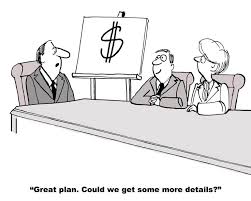I've been investing since the late 70's and trading actively since the late 90's. I've read 6 hours a day for more than a decade. I've lost lots of money. I've made (a bit) more than I've lost.
There are no "trading secrets" just weak signals embedded in lots of noise across many domains (capital markets, math, psychology etc.) and big markets are (mostly) efficient . I've written about how Paul Tudor Jones categorizes trading systems. I copied him when I consider different approaches. For what it's worth, here's what I've learned that took me too many years to extract from the noise.
10 Insights that Improved my Trading
1) All trades make or loose money because of either "timing" or "co-destiny" with the security.
- Sell/BuyMore winners vs Sell/BuyMore loosers are implementation details of 1) both work when used properly
2) Indices are more efficient (harder to trade) than individual stocks or commodities and are just an algorithm for combining those underlyings.
3) Forecast time and price separately.
- The driving forces around each overlap but are mostly different
4) "Value Investing" = make your money on the entry timing "Momentum Investing" = make your money on the exit timing.
5) Use the markets to forecast the market (COT, Term Structures, Sentiment, Sectors,Company Valuation etc.)
- Markets are smarter than you are
6) Understand whether prices are being driven by credit or money. Money has "cleared" credit has not (yet) and because the financial economy is much larger than the real economy (10x) it can cause fundamentals to appear to stop working.
7) Don't use pre-1971 (fixed-exchange rates) assumptions, a market can be rising in one currency while dropping in another creating different motivations.
8) Fitting vs. Forecasting
- You can fit a curve to random data but it won't forecast the future
9) Bet sizing is Job 1.
- Larry Williams called it the "Keys to the kingdom" he's right
10) MPT is right for everyone but wrong for anyone.
- Ole Peters proved a mathematical mistake was propagated into current economic theory that has yet to be reconciled, unlike physicists who formalized whether a system is ergodic in their work.


